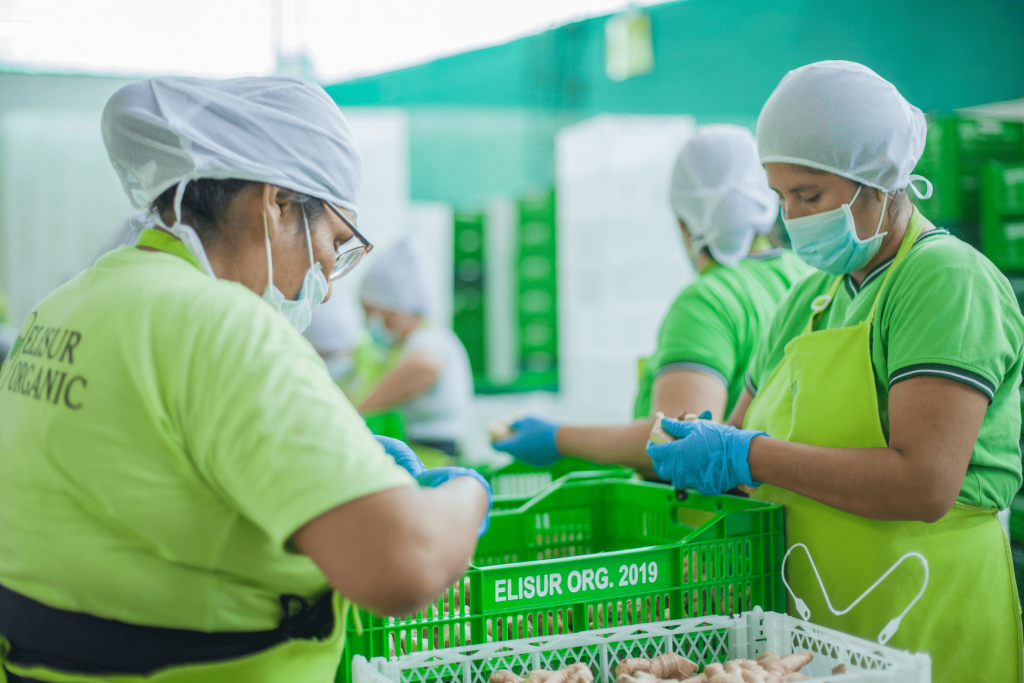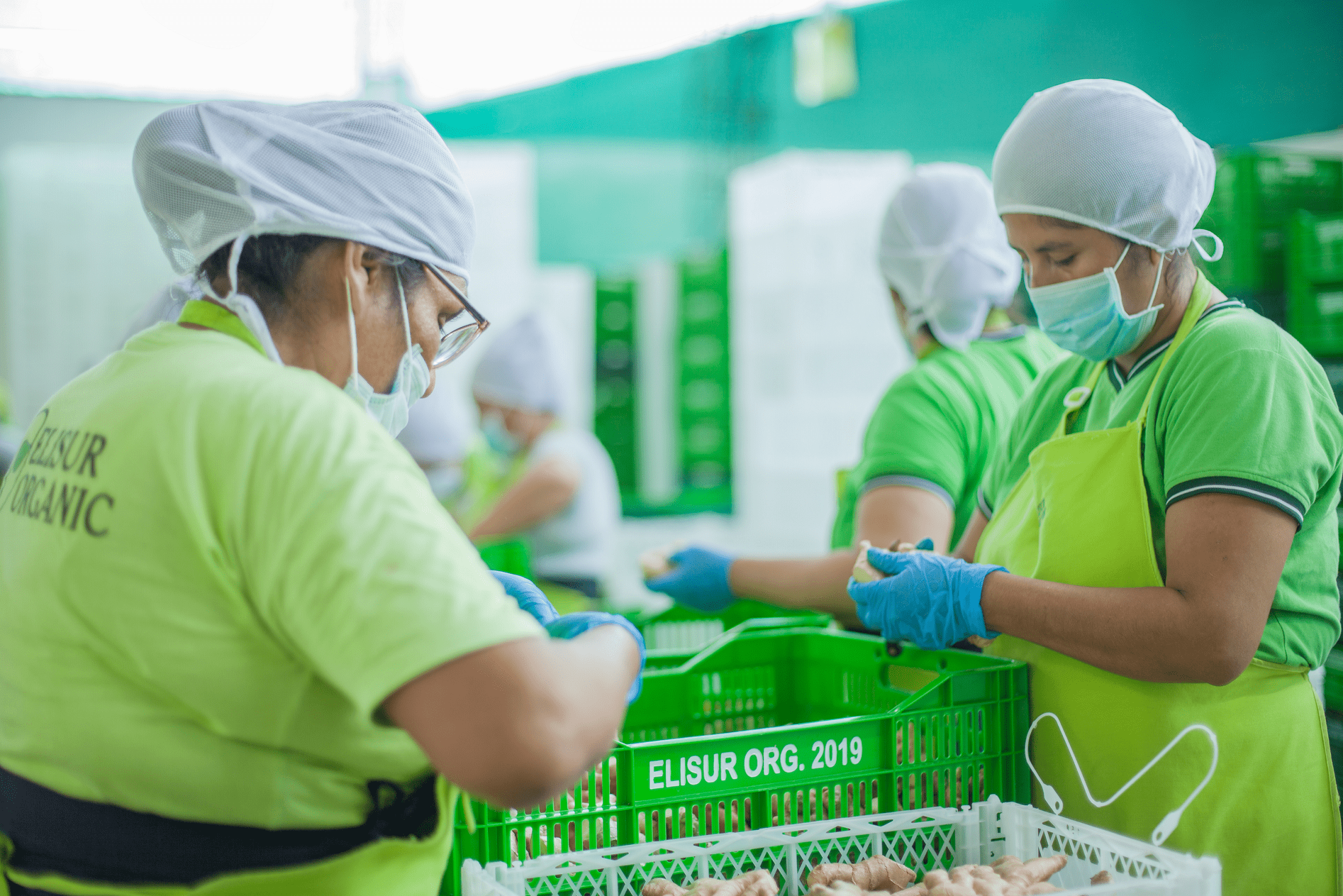Demand for organic ginger skyrockets due to the pandemic
In 2020, Peruvian ginger reached export levels never recorded before. The healthy properties and nutritional benefits of ginger, added to the decrease in supply from China, the world’s leading producer, resulted in a great opportunity for Peru, whose campaign coincided with the expansion of the health crisis.
Matthew Seeley, CEO of Organic Produce Network, highlighted this during the presentation
“Resiliency and Rebound” at the last PMA Fresh Summit, “the fact that people have stayed at home led them to try new products, as was the case with organic ginger, whose sales soared during the pandemic.”
“By the end of September this year, 30,000 tons of ginger had been exported nationwide, while the volume exported throughout 2019 was 23,000 tons,” said Kristel Camargo, manager of the Peruvian company Elisur Organic SAC, dedicated to the production and marketing of organic ginger and turmeric. “Internal demand in China has resulted in a notably lower supply for export, which has translated into higher prices in international markets. It is estimated that the closing of the campaign, which is usually at the end of March, will be brought forward to February and, in a very optimistic demand scenario, it could even end in January. Prices had been rising strongly since September, until a few weeks ago, when companies generated stocks in their warehouses to avoid having constant price variations. This caused the price to stop its abrupt increases, and even started a downward trend. At present, prices remain stable with a slight downward trend, however the few volumes that remain in the fields would generate a new change in prices as the season ends.”
Elisur Organic will reach 4,000 tons of organic ginger in 2021-2022
Since its inception in 2016, Elisur Organic has become one of the five largest ginger exporters nationwide, reaching markets such as Spain, Italy, Germany, the United Kingdom, the Netherlands, the United States and Canada. The projections are for further growth. For the 2020-2021 campaign, exports will reach 2,600 tons of fresh product, with expectations of about 4,000 tons in 2021-2022, from 200 hectares planted. Elisur Organic has a solid sustainability policy based on three pillars that reflects its attitude towards life and way of thinking. The first is the protection of nature. “Our activities are based on organic agriculture, on the proper and efficient use of resources, maintenance of fertility and recovery of the soils used, and the control of pests, diseases and weeds.” The second pillar is the development of people. “We trust in the talent of the people. We know that each professional has cultivated and learned specific skills in their area; which is why we are one of the few companies in this part of Peru that invests in trained and specialised personnel, health care and promotion of their personal and professional development.” All this effort is capitalised through the GRASP certification. The third pillar is economic growth. “Accessing foreign markets has helped us to increase the volume of production, improve the income margin, and have constant work throughout the year; all this has increased the jobs and improved the income conditions and quality of life of our partner farmers, having a positive impact on the economy of the central jungle of Peru.” Elisur Organic has been implementing the necessary conditions to certify as Fair Trade.




